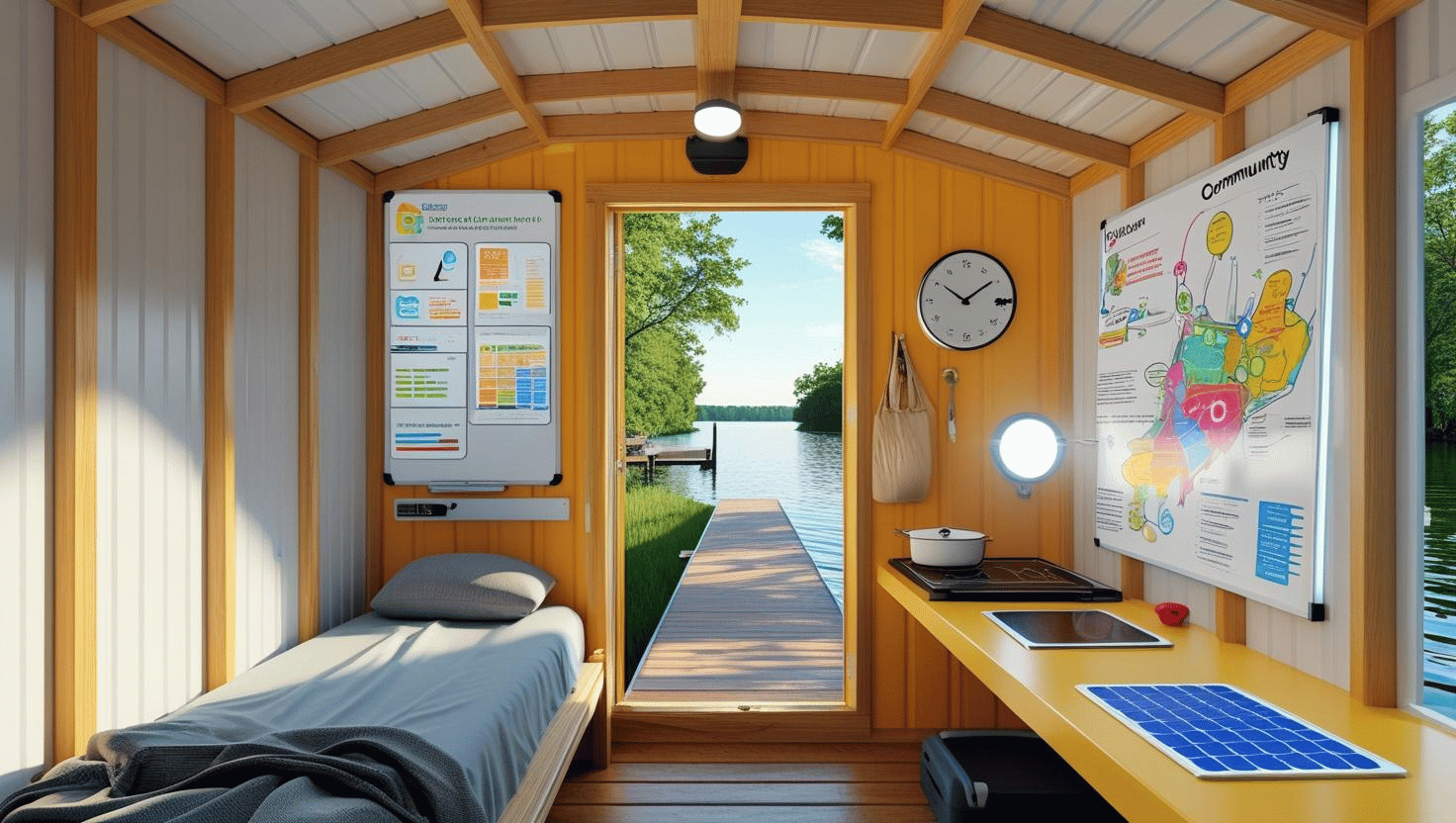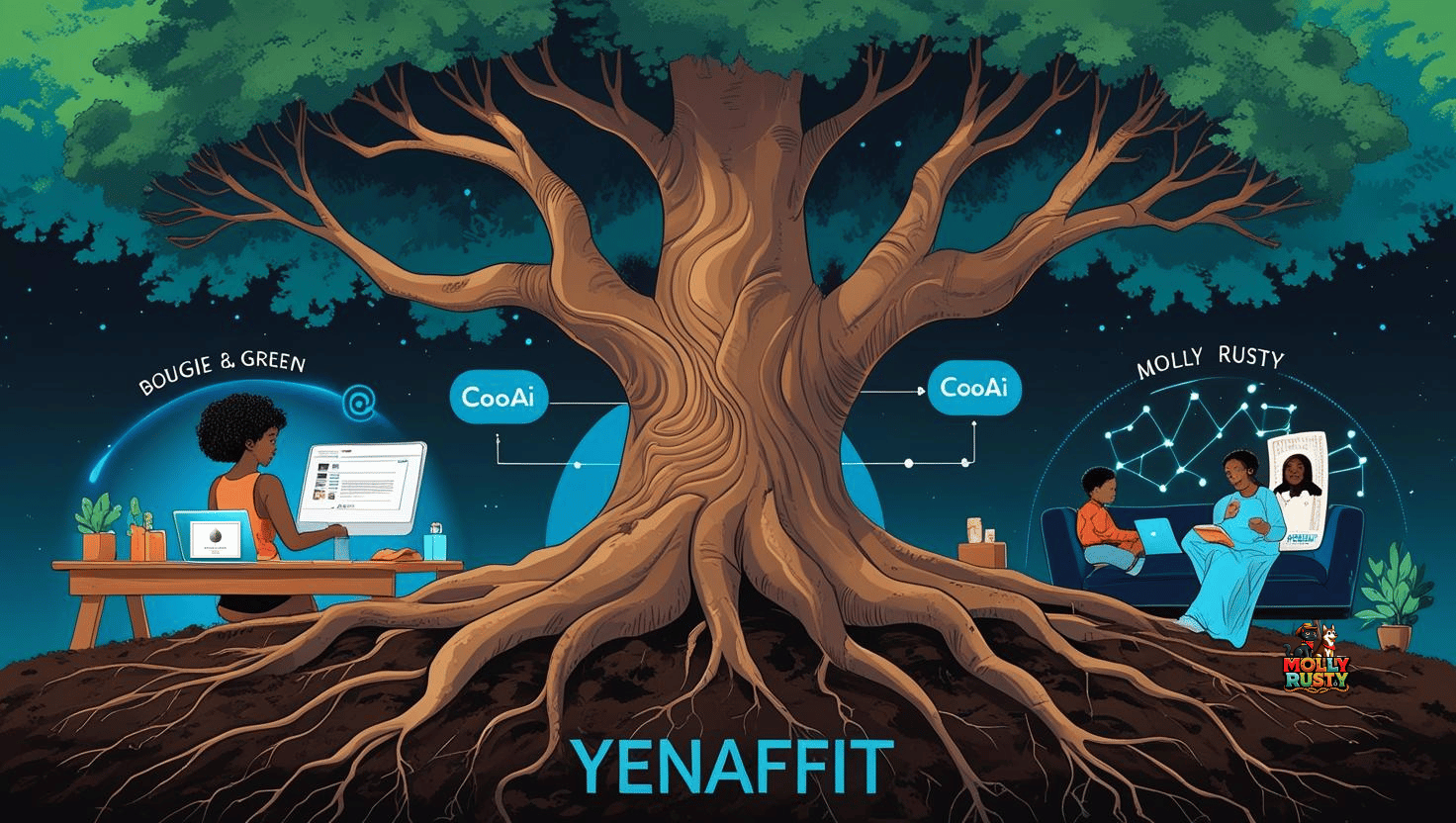The Seed That Became Yenaffit, Inc
Reflecting on the origins of intentional building and how personal need became business strategy.
It didn't start with a blueprint.
It started with a fracture.
One day the contract was solid—enterprise-level, global scope, full-stack transformation work for one of the largest healthcare firms in the world. The next day, it was gone.
And just like that, everything got quiet.
Not just externally, but internally. The kind of quiet that strips away performance and asks deeper questions. The kind of quiet that doesn't wait for your résumé to catch up to your purpose.
She left the noise of corporate systems behind and moved into a shed—160 square feet of stillness, sitting on nearly two acres of lakefront land in Texas. Not because she had to. Because she chose to.
Sometimes you don't downsize your life. You just right-size your truth.

Inside that stillness, something began to root.
This wasn't a sabbatical or some minimalist experiment. It was the beginning of something entirely different—a slow-burning, systems-level reimagination of how to build, live, and serve.
Days were spent troubleshooting real-world constraints. Nights were for mapping out answers no one had asked for yet. What began as post-contract survival turned into sovereign strategy.
And from that, the first threads of Yenaffit began to form—not as a business yet, but as a way of seeing the world differently.

The original workspace where everything began to take shape.
The Foundation
The original purpose of Yenaffit was simple: a legal consulting entity to house her work as a Senior Technical Business Analyst. That was the surface.
But just beneath it, the deeper mission was already alive. A knowing that rural life, if treated as viable and worthy of design, could thrive again. That the systems she once helped optimize for billion-dollar companies could be redirected toward small towns, overlooked communities, and forgotten land.
Not for charity. Not for pity.
For power, equity, and lasting infrastructure.
What she'd built for others—she would now build for herself.
And everyone like her.

Mapping the framework for systematic change.
The Branches
Yenaffit became the foundation. Not just of a business—but of a worldview. It held space for more than one solution, more than one venture, more than one way forward.
From that fertile ground emerged three very real branches:
- Bougie & Green, a digital eco-lifestyle marketplace powered by global suppliers and clean values
- COOai, a smart assistant for small businesses trained entirely on their own documents and data
- Molly Rusty, a publishing platform dedicated to preserving Black stories and reimagining children's literature through a cultural lens
None of these ideas were theoretical. They were personal. They were timely.
And they were necessary.

Multiple solutions emerging from one systematic approach.
The Evolution
Still, the work evolved.
Yenaffit didn't become a brand on the shelf. It became a holding ground—quietly nourishing everything to come. The storefronts, the services, the creative outputs—all now live under a deeper banner:
tiffaneyrideaux.com\services
A unified place to book her freelance strategy, purchase her digital creations, or witness the way her mind moves—still intentional, still rooted in that lakeside rhythm.

The work continues, deeper and more intentional than ever.
The Living Proof
The seed was small.
The silence was loud.
But what grew out of it was a company, a philosophy, and a living proof:
That personal need isn't a limitation.
It's the beginning of strategy.
Each venture teaches us something about this process. About the distance between personal need and market opportunity. About the skills required to translate lived experience into scalable solutions. About the balance between growth and authenticity.
The next phase isn't about building more ventures, necessarily. It's about building better ones. About developing the infrastructure and wisdom to support this kind of work sustainably, so that need-based building can become a viable alternative to purely strategic approaches.
Because the world has enough solutions looking for problems. What we need are more problems being solved by the people who understand them best—starting with their own lives, expanding to include everyone who shares that experience.
That's the seed that became Yenaffit. And it's still growing.